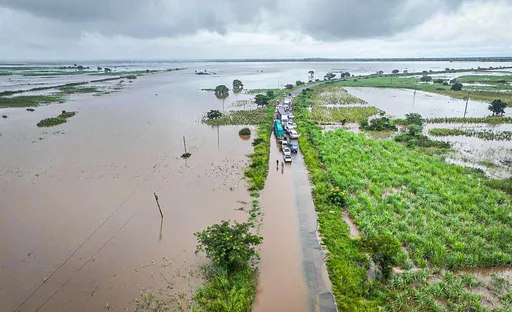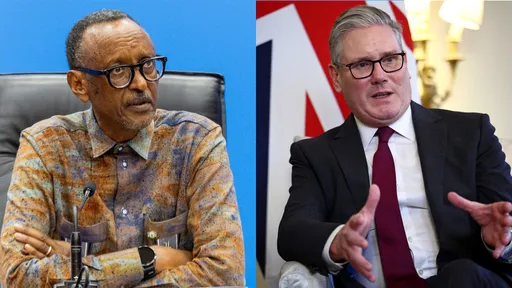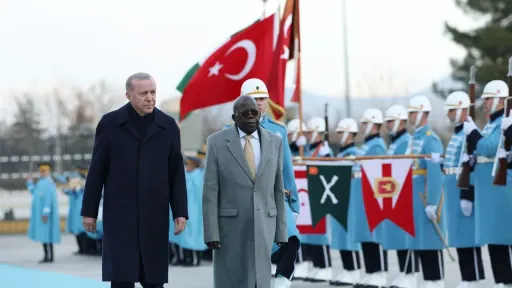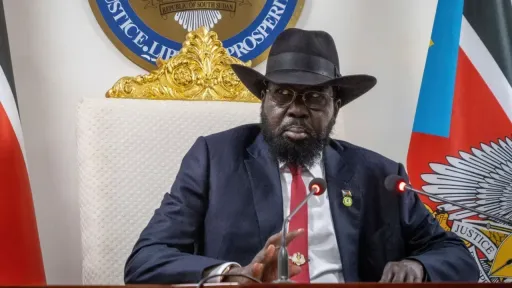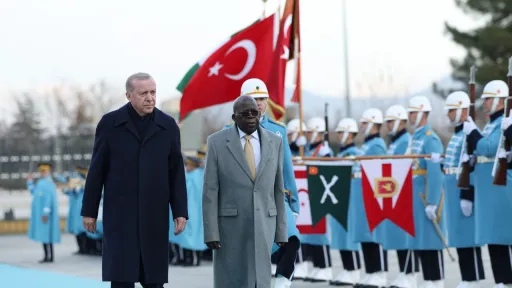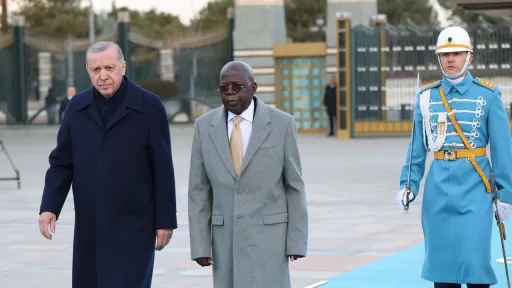Raila Odinga may not have won the presidency in five attempts, but for four decades he remained central to Kenyan politics, his unmatched charisma and tenacity giving him a hold on the nation's imagination that no electoral defeat could diminish.
He was detained without trial, forced into exile and ran for President five times, claiming each time that he was denied victory.
He was both former Kenyan President Uhuru Kenyatta's fiercest rival and his partner in what became a historic handshake.
He once allied with current President William Ruto, then became his opponent, only to surprise many by opening a dialogue with him again.
For more than four decades, former Prime Minister Jaramogi Raila Odinga was the enigma of Kenyan politics, the man who was never quite in power, yet never out of it either.
Raila's sudden death on October 15 at Koothattukulam in India's Kerala on October 15 marks the end of an era.
Early years
Born on January 7, 1945, Raila grew up around politics. His father, Jaramogi Oginga Odinga, was Kenya's first Vice-President under Jomo Kenyatta after the East African nation gained independence in 1963 from British colonial rule.
When Jaramogi and Kenyatta fell out, Kenya's politics changed forever, setting the stage for the younger Odinga to carve out his own space.
Raila studied mechanical engineering in what was then East Germany during the Cold War. Perhaps it was the mix of socialism and struggle in that part of the world that shaped his worldview. He even named his first son Fidel after Fidel Castro, a reflection of his revolutionary ideals.
Detention and exile
Raila's political journey was nothing short of eventful, if not unique.
In 1982, he was detained for six years without trial, accused of taking part in a failed coup against the then President, Daniel arap Moi. While he was eventually released, his ordeal didn't end there.
He lived under constant surveillance and was allegedly subjected to harassment before going into exile in Norway in 1991.
In 1992, with Kenya finally opening up to multi-party democracy, Raila returned and won the Lang'ata parliamentary seat. From there, he became the face of the opposition, the politician whose outspokenness became his hallmark when many others chose to keep quiet.
His tenacity was reflected in five unsuccessful attempts at the presidency – in 1997, 2007, 2013, 2017 and 2022.
The 2007 election, especially, tore the nation apart, leading to violence that left more than 1,100 people dead. It was one of Kenya's darkest chapters.
But out of this chaos came a moment of reconciliation, a power-sharing deal that made Raila the country's prime minister in 2008, with his rival Mwoi Kibabi serving as president.
It would turn out to be a bittersweet victory, briefly sating his political ambition before fading out with the advent of the new 2010 constitution, which scrapped the prime ministerial position and consolidated executive power under the presidency.
Famous handshake
After yet another fiercely contested election in 2017, when many believed the rivalry between Raila and then President Uhuru Kenyatta would never end, the former stunned the nation the very next year by shaking his rival's hand.
The handshake, labelled historic in more ways than one, ended decades of political hostility and reshaped Kenya's political landscape.
Raila's relationship with President Ruto was as complex as they come. From allies in the Orange Democratic Movement's 2007 campaign, they became arch-rivals as Ruto broke away to chart his own political path.
The duo's rivalry defined Kenya's later elections. But in true Raila fashion, he sprang a surprise with an offer of reconciliation with Ruto after the heat of the 2022 contest.
That moment illustrated what Raila believed in – in politics, a door never shuts completely.
A phenomenon
So, what was it about Raila that drew so many to him and never quite ruled him out of Kenyan politics?
Raila wasn't just a politician; he was a force of nature in many ways.
Charismatic, fiery and stubborn in equal measure, his rallies felt like concerts filled with chants, reggae music and unshakable energy. He turned Lucky Dube's Nobody Can Stop Reggae into a campaign anthem.
A loyal fan of the English Premier League club The Arsenal, he would credit football with teaching him to accept defeat and victory with grace.
Raised Anglican and later baptised as evangelical, Raila was married to Ida Odinga for more than 50 years, a partnership built on resilience and shared purpose.
While history might see him as one of Kenya's most influential and polarising political figures, Raila meant different things to different people. To his supporters, he was the father of democracy. In the eyes of his critics, he was the master strategist who never stopped being combative.
One thing is certain: you can't tell Kenya's political story without Raila being one of its central figures. He is the man who never left the stage.
Tributes to a maverick
The Chairperson of the African Union Commission, Mahmoud Ali Youssouf, described Raila as "a towering figure in Kenya's political life and a steadfast champion of democracy, good governance, and people-centred development".
"His decades-long commitment to justice, pluralism, and democratic reform left an indelible mark not only on Kenya but across the African continent. He inspired generations of leaders, including myself, and citizens alike through his courage, resilience, and unwavering belief in the power of dialogue and democratic institutions," Youssouf said.
"As the African Union's high representative for infrastructure development in Africa, he worked tirelessly to advance the continent's integration and connectivity agenda, helping to lay the foundations for the African Continental Free Trade Area (AfCFTA) and broader socio-economic transformation."
Tanzanian President Samia Suluhu said the world had "lost a brilliant leader, a global African, a peace-loving and solution-seeker, whose influence and love were not only in Kenya, but in East Africa and Africa at large".
"This tragedy is not only for Kenya, but for all of us," she said.
Her Zambian counterpart, Hakainde Hichilema, issued a similar statement. "Saddened to hear of the passing of former PM Raila Odinga. We extend our deepest condolences to the people of Kenya, the Odinga family, President William Ruto and all those touched by this towering advocate for democracy. His legacy will endure. May he rest in eternal peace."
Ethiopian Prime Minister Abiy Ahmed Ali, too, expressed his grief at Raila's passing. "On behalf of the government of Ethiopia, I extend my sincere condolences on the passing of former Kenyan Prime Minister Raila Odinga. May he rest in peace."
In India, Prime Minister Narendra Modi wrote on X about Raila's sterling qualities of head and heart. "Deeply saddened by the passing of my dear friend and former Prime Minister of Kenya, Raila Odinga. He was a towering statesman and a cherished friend of India. I had the privilege of knowing him closely since my days as chief minister of Gujarat and our association continued over the years. He had a special affection for India, our culture, values and ancient wisdom."











